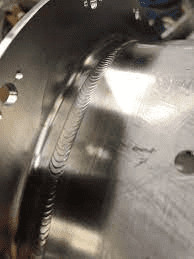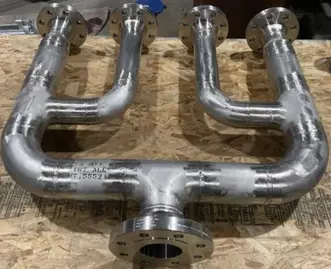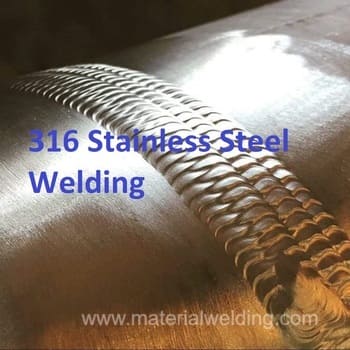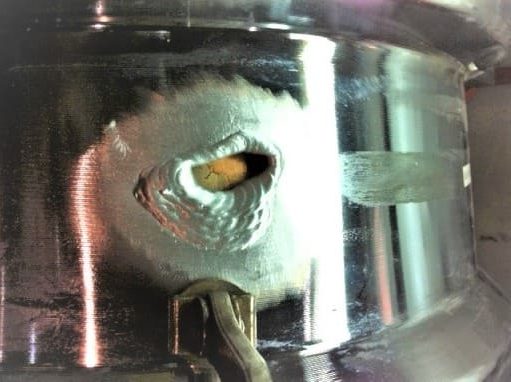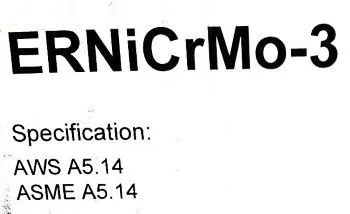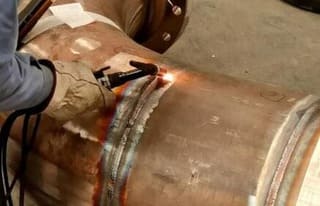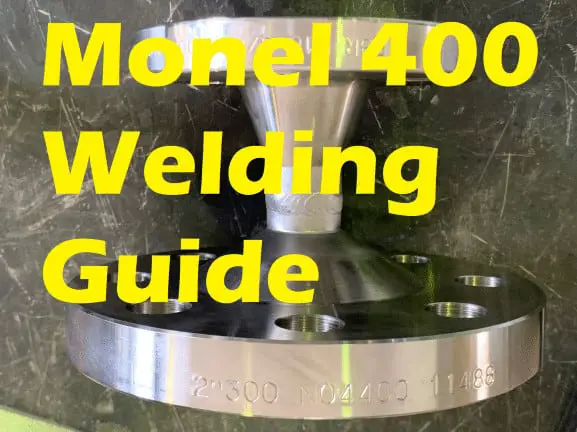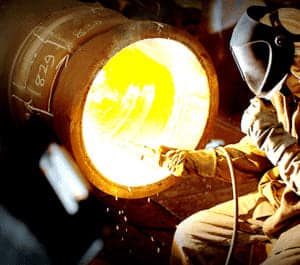What is Inconel 625 made of and its uses?
Inconel 625 is a high Nickel- chromium (Ni-Cr) base alloy with the addition of niobium (Columbium) & Iron (Fe) having very high corrosion resistance compared to austenitic stainless steel or Duplex stainless steel and mechanical strength.
Inconel 625 has excellent low temperature as well as high-temperature properties (toughness, tensile, creep & rupture strength).
It is non-magnetic due to its austenitic microstructure. Inconel 625 has excellent corrosion resistance for pitting corrosion, crevice corrosion, oxidation, and carburization.
Applications of Incoloy 625 are in aerospace, oil & gas, heaters tube etc.
Material Specifications
SB–366, SB–443, SB–444, SB–446, SB-565, SB-704, SB 705, BS3074, AMS 5599 and AMS 5666.
The ISO/ DIN equivalent material of Inconel 625 is NiCr22Mo9Nb grade. The material is available in various forms such as plate, sheet, tube, pipe, bar and flats.
Chemical and mechanical properties of Inconel 625
The UNS Number of Inconel 625 is UNSN06625. The ASME Section IX P Number for Welding of Inconel 625 is P No. 43. The Brazing P No. for Inconel 625 is P No.111.
Related reading: Inconel 601 Welding Guide
Nickel is the primary alloying element of Inconel 625 and shall be a minimum of 58% of total alloying followed by chromium and molybdenum.
The density of Inconel 625 is 8.44 g/cm3. The pitting resistance equivalent number (PREN) of Inconel 625 is 45 or higher.
The chemical properties of Inconel 625 are given in the below table.
| Nickel | Iron | Chromium | Silicon | Molybdenum | Manganese | Carbon | Al | P/ S |
|---|---|---|---|---|---|---|---|---|
| 58% min. | 5% | 20- 23% | 0.5% | 8- 10% | 0.5% | 0.10 % | 0.4% | 0.015% |
The Tensile Strength of Inconel 625 at ambient temperature is 120 -160 Ksi (827-1103 MPa) and the Yield strength is 60 -110 Ksi (414-758 MPa).
The elongation of Inconel 625 is 30 -60% and the hardness is 175-240 HB. The detailed mechanical properties are shown in the below table.

Inconel 625 welding Consumables/ Rod/ wire
- Stick or SMAW Welding electrode/ rod for Inconel 625 Welding: ENiCrMo-3
- TIG/ MIG Welding electrode/ rod for Inconel 625 Welding: ERNiCrMo-3
- Stick or SMAW Welding electrode/ rod for Inconel 625 Welding to Carbon steel/ stainless steel: ENiCrMo-3/ ENiCrFe-2/3
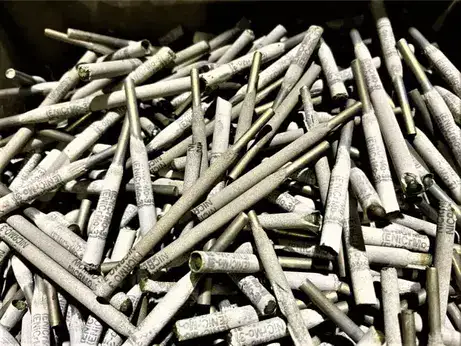
Stick/ SMAW Welding of Inconel 625
Stick Welding of SMAW Welding of Inconel 625 is carried out using ENiCrMo-3 (AWS A 5.11 material specification). ENiCrMo-3 is also known as Inconel Welding Electrode 112.
Inco-112 (ENiCrMo-3) provides a weld deposit ( 60 Ni, 22 Cr, 9 Mo, 5 Fe, and 3.5 Nb plus Ta) similar to the base metal properties.
The temperature application range of ENiCrMo-3 (Inco 112) is from cryogenic to 1000°F (540°C). No special baking is required for the ENiCrMo-3 type rod but it is recommended to keep the electrodes in the holding oven to control moisture.
Moist electrodes can cause weld porosity which could be difficult to troubleshoot unless you are dealing with Inconel 625 welding everyday.
TIG/ MIG Welding of Inconel 625
TIG (GTAW) or MIG (GMAW) welding of Inconel 625 is carried out using ERNiCrMo-3 (AWS A 5.14). ERNiCrMo-3 is also known by name as INCONEL Filler Metal 625.
This wire gives a weld deposit similar to the base metal. When Welding Inconel 625, pure argon is used for gas shielding and gas purging.
Gas purging is a must when welding Inconel 625 material. Typical welding parameters used for Inconel 625 welding are given in the below table for Stick welding and TIG Welding applications.
| Process | Welding ampere | Welding Volts | Welding speed mm/min | Polarity | Inter-Pass Temp. °C | Flow rate LPM |
|---|---|---|---|---|---|---|
| Stick Welding | 80- 120 | 19- 23 | 170- 210 | Reverse | 175 max. | – |
| GTAW (TIG) | 80 to 125 | 14- 18 | 90-120 | Straight | 175 max. | 10 to 20 |
Preheat, Interpass & PWHT temperature
Preheat for welding is not required for Inconel 625 material unless the material is in an aged condition due to creep.
The new material of Inconel 625 is readily weldable without any issues. Welding heat input control is recommended to avoid any weld cracking issues that can arise due to austenitic microstructure such as hot cracks or solidification cracking.
Interpass temperature for Inconel 625 welding shall be kept below 350 °F (175 °C). Post weld heat treatment for Inconel 625 is also not recommended.
Inconel 625 to Carbon Steel welding
Stick Welding or SMAW Welding of Inconel 625 to carbon steel/ mild steel is carried out with AWS SFA/A 5.11- ENiCrFe-2 or ENiCrFe -3 electrode.
TIG/ MIG Welding of Inconel 625 to Carbon steel/ Mild steel is made using ERNiCrFe-6 or ERNiCr-3 type filler wire.
Stick welding of Inconel 625 to carbon steel or other dissimilar metallurgy can also be welded using ENiCrMo-3/ ERNiCrMo-3 electrode/ filler wire.
Inconel 625 to Stainless Steel welding
Stick Welding or SMAW Welding of Inconel 625 to Stainless steel is carried out with AWS SFA/A 5.11- ENiCrFe-2 or ENiCrFe -3 electrode. TIG/ MIG Welding of Inconel 625 to stainless steel is made using ERNiCrFe-6 or ERNiCr-3 type filler wire.
Pure argon gas is used for gas shielding & gas purging purposes when welding Inconel 625 material.
TIG wires are available in different diameters to suit the various needs. Welding of 410 Stainless Steel type to Inconel 625 can be done using ERNiCrMo-3 (Inco 625 filler).
Inconel 625 weld microstructure
The microstructure of Inconel 625 is primarily FCC which is due to its high austenitic phases. Microstructure in a solid solution matrix contains austenite and may have carbides (MC type & M6C type carbides).
The below microstructure of Inconel 625 consists of austenite matrix and MC carbides. we can see the recrystallized grains and twins in this microstructure.
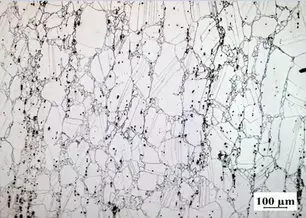
Inconel 625 welding Defects
Weld metal solidification cracking ( Hot cracking appearing at the weld center ) In Inconel 625 is possible & reported.
The most likely causes are the highly austenitic microstructure, depth to width ratio of the weld or low melting constituents segregation, % dilution (could be when welding with stick welding, although TIG is highly clean).
Moisture in stick welding electrodes can cause weld porosity due to the presence of high hydrogen levels in the weld metal however, as the weld microstructure is FCC, hydrogen cracking is not a concern when welding Inconel 625.

